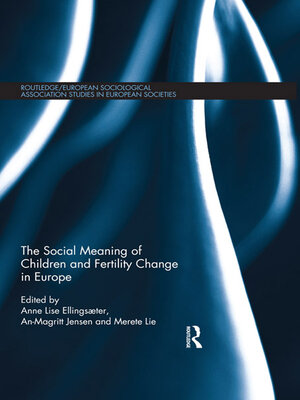The Social Meaning of Children and Fertility Change in Europe
ebook ∣ Studies in European Sociology
By Anne Lise Ellingsaeter

Sign up to save your library
With an OverDrive account, you can save your favorite libraries for at-a-glance information about availability. Find out more about OverDrive accounts.
Find this title in Libby, the library reading app by OverDrive.



Search for a digital library with this title
Title found at these libraries:
| Library Name | Distance |
|---|---|
| Loading... |
Low fertility in Europe has given rise to the notion of a 'fertility crisis'. This book shifts the attention from fertility decline to why people do have children, asking what children mean to them. It investigates what role children play in how young adults plan their lives, and why and how young adults make the choices they do.
The book aims to expand our comprehension of the complex structures and cultures that influence reproductive choice, and explores three key aspects of fertility choices:
Based on empirical studies from six nations – France, Scandinavia, Denmark, Norway, Sweden, Germany and Italy (representing the high and low end of European variation in fertility rates) – the book shows how different economic, political and cultural contexts interact in young adults' fertility rationales. It will be of interest to students and scholars of sociology, anthropology, demography and gender studies.







